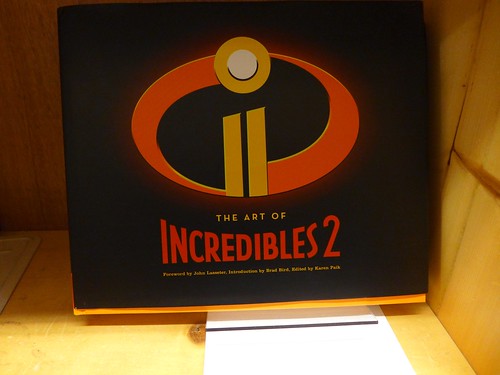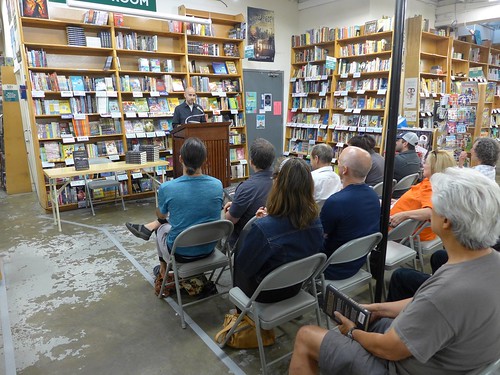The stereotype of a Protestant is one who protesteth that he's working all the time, because of the Work Ethic thing, where you're a burden on the King if you don't serve His Royal Court in some way. One must justify one's existence, as jurisprudence in this jurisdiction dictates, omni omni Latin Latin yadda yadda, Amen.
When New Math came out, as we saw in
Incredibles 2, parents felt hard pressed to keep up and help with homework. Parents not knowing any of what junior brought home as assigned labor ("homework") was undermining of their authority. The head of household needed to establish basic mathematics competence in the eyes of progeny, given the insistence on maths as a Cold War necessity (
Incredibles 2 is set in the 1960s but is entirely innocent of political war-making, unlike the backdrop for
Black Panther).
Speaking of both
Wonder Woman and
Black Panther, I'm back with the Ottoman Turks reliving the final days of the British Empire. So really? Ireland and India color-coordinated their respective flags? Both were striving to gain egress. Iraq, newly taken, along with Persia (Iran) and Kuwait, were also chafing to establish a more localized sovereignty. Iran was actually not part of the UK, just the oil deal was highly favorable to BP or whatever they called it back then. I've also been studying the Opium Wars, which is relevant in light of the American opioid epidemic.
So Physics has its own meaning for Work (W) in terms of energy, with units of productivity and throughput, along with Big O notation in Computer Science (CS). As a hominid, we burn calories at about the rate of a light bulb, but we're not all doing the same processing, in the sense of Process Work (I've been attending workshops downtown).
By analogy, not all CPUs or GPUs are running the same jobs, an obvious point, but when considering raw power in a "plugged into some hydro dam" sense, there's a tendency to overlook just what exactly the power is used for (usually a long story).
What if families were under time pressure to learn GNU stuff in a hurry, as in bash (Bourne again shell) and other POSIX type stuff? A lot of them are. Dads and moms everywhere are wading into bash, a gateway shell environment. Much of the working out is not directly compensated, and in fact people go into debt seeking these skills, having been promised a shovel at the end of the rainbow with which to dig themselves out of their financial hole. Many retirees are counting on those student debt backed annuities.
So how is the Global U, going forward, planning to teach about Work both in the Protestant Christian sense, and in the more secular sense of Higgs Boson (God particle) physics? Thermodynamics enters in. Climate science. Concerns about plastic in the biosphere. Thinking globally, while acting locally, is not something one consciously chooses to do, necessarily, which is why "Think Globally. Act Locally" is less a moralizing enjoinder and more just a label on the box, especially where billionaires are concerned, processing financially as it were. Is that work?
The pressure to learn New Math had to do with maybe those Communist nations pulling ahead, now that they had the full support of their Proletariat base classes. Capitalism needed to prove itself through its superior university system, and the
University of Chicago was up for the fight.
SMSG (the official name for New Math) would introduce the missing rigor required by Academe of its best and brightest. I was a guinea pig for this project, one of many, until extracted and landed in a British facility, with coat and tie.
However, as students of Systematic Ideology well know, political ideologies tend to have a short half-life, morphing into one another (quantum physics like) with Marxist Russians nowadays presenting as Eastern Orthodox, or some other Byzantine variant of what was once Emperor Constantine's official religion for the Roman Empire. Protestants have lost some of their shining lights to this competing branch of the One True Faith (OTF).
The Ottomans were planning to follow Rome's model, but using Islam as an engine, in place of Christianity. They were semi-successful I suppose one might say. I'm still catching up on all these stories, and I haven't even started on
Game of Thrones.
The question is "what Work is productive?" and in which namespace are we, when asking that question. What "work" is merely Entropy in disguise? The water would have flowed downhill anyway, but you're charging me for this "service"? This line of inquiry invariably plunges us into Information Theory, Thermodynamics (again) and of course GST (the general theory of systems).
Would it behoove the Seattle economy to invest in luxury cruise submarines that take people to undersea gardens and even SeaWorld Resorts? Or would that make less sense than extending the monorail, which I gather continued to see service after that mixup with
Elastagirl (
Incredibles 2 allusion). Investment bankers decide which science fiction scenarios deserve their reputations and savings, be those autonomous vehicles (and required infrastructure), Hyperloop, hotel submarines or whatever.
Seattle does have a history of building submarines already, as well as hosting a World's Fair. Fewer people remember the Spokane Expo, making for two such events in the same Union state. Oregon hosted a giant world's fair type expo as well, in 1905, called the
Lewis & Clark Centennial Exposition. Oregon had joined the Union on Valentine's Day, 1859.
Microsoft has shifted a lot of its weight over to Github for a reason: collaboration on software projects is a way of life for many of its most productive developers. Like I'm these days hacking on a next iteration of
Martian Math for Silicon Forest clients.
PayPal was talking about Inner Source. The culture has benefitted greatly from the productivity of the GNU era engineers, once their best tools were escaped (freed) from the grip of IP lawyers. Or rather, a new brand of IP law challenged an older set of schools for intellectual dominance and carved out some turf. Linux would make a splash as the darling of the Dot Com revolution, only to take up residence in the cloud as a premier cloud service, long after Dot Com at ceased to be as much of a thing.
What I'm saying is the dad in
Incredibles 2 is tackling a hard job in reprogramming himself to think more like a New Math teacher (Tom Lehrer et al) and parents continue to face a steep wall in the homework department, with Learning to Code a new kid on the block. Nowadays we're pummeled with messages about the importance of coding to a child's future, but without much attempt to provide parents with the necessary background. That's all changing of course, plus many parents are already techies and/or hobbyists leading the charge. The point is: learning to code is hard work.




